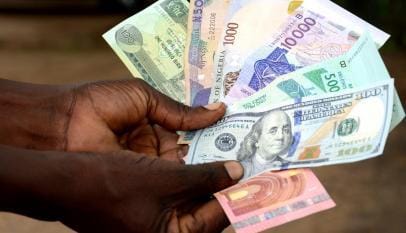Despite global economic volatility, several African nations continue to strengthen their monetary resilience. In the latest rankings for May 2025, the Tunisian Dinar holds its position as Africa’s strongest currency, trading at 2.97 TND to the US dollar.
According to data compiled using tools such as the Forbes currency calculator, these rankings highlight countries with the most valuable legal tenders on the continent, reflecting disciplined economic management and policy stability.
Top 10 Strongest African Currencies (May 2025)
- 🇹🇳 Tunisia – 2.97 TND/USD (Tunisian Dinar)
- 🇱🇾 Libya – 5.43 LYD/USD (Libyan Dinar)
- 🇲🇦 Morocco – 9.17 MAD/USD (Moroccan Dirham)
- 🇬🇭 Ghana – 13.20 GHS/USD (Ghanaian Cedi)
- 🇧🇼 Botswana – 13.38 BWP/USD (Botswana Pula)
- 🇸🇨 Seychelles – 14.21 SCR/USD (Seychellois Rupee)
- 🇪🇷 Eritrea – 15.00 ERN/USD (Eritrean Nakfa)
- 🇳🇦 Namibia – 17.83 NAD/USD (Namibian Dollar)
- 🇱🇸 Lesotho – 17.83 LSL/USD (Lesotho Loti)
- 🇿🇦 South Africa – 17.88 ZAR/USD (South African Rand)
Notable Highlights:
Ghana’s Cedi saw a strong rebound, rising from 15.46/USD in April to 13.20/USD in May, now ranking fourth, ahead of Seychelles and Botswana.
South Africa’s Rand improved in exchange value, but still dropped to 10th place due to gains made by Namibia and Lesotho.
The Tunisian Dinar continues to lead due to rigorous exchange controls and stable macroeconomic policies.
Eritrea’s Nakfa remained unchanged, indicating consistent but highly regulated currency management.
Why Currency Strength Matters:
A strong national currency often signals economic stability, controlled inflation, and international confidence, especially important for nations dependent on imported goods. Countries like Tunisia, Morocco, and Botswana show how sound policy and low inflation contribute to robust exchange rates.
In contrast, weak currencies often result in higher costs for imports, leading to inflation and reduced purchasing power for citizens. For this reason, the strength of a currency is not just symbolic but directly tied to economic well-being.
With the African Continental Free Trade Area (AfCFTA) gaining momentum, countries with stable currencies are expected to play a leading role in shaping Africa’s future trade and investment flows. As global markets evolve, Africa’s most stable economies may find themselves increasingly influential on the world stage.



